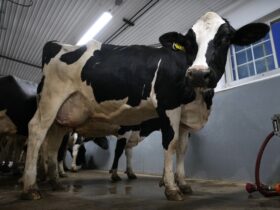United States: The survey conducted by KFF shows that 23 percent of those who were disenrolled when states began verifying eligibility for health insurance coverage last year still lack coverage.
This condition puts such a patient in a situation of being unable to afford insurance coverage and being retained in the line to an opposite health care provider.
KFF, a nonprofit healthcare policy organization, designed a survey on the blow-up of individuals who are enrolled in Medicaid, a USA government-run health program for the poor and people with disabilities as well.
During the COVID-19 era, the federal authorities delivered tens of billions of dollars to the states but those funds were retained by Medicaid because the emergency was in place.
When the COVID-19 period ended, and eligibility verifications resumed last April, states were allowed to begin enforcing checks at their own pace.

Some states rushed and required healthcare providers to conduct more tests, while others implemented baseline checks more slowly. Only in two states, Oregon and Alaska, will this continue until early 2025.
How was the survey conducted?
KFF conducted a national survey of over 1200 US adults, 19 percent of whom had Medicaid coverage during that period and were disenrolled, some temporarily and others long-term.
Of those disenrolled from Medicaid, 47 percent later became eligible to re-enroll. Close to one-fourth of adults, or almost one in four, were able to obtain health insurance through their workplace, the military, an Affordable Care Act insurance plan, or the Medicare program for individuals over 65.
Even before the pandemic, many people had volatile Medicaid eligibility due to life circumstances such as job loss, new employment, or the birth of a child.
According to a report by USA Today, this year’s unprecedented event was the large number of eligibility checks conducted by state Medicaid programs, which had to be done not only during the COVID-19 emergency but also in its aftermath.
Expert findings
KFF’s research found that 20.1 million Medicaid recipients were disenrolled due to the resumption of eligibility checks last year. However, 43.6 million had their insurance renewed or their terms extended, and an additional 30.4 million are currently in line to have their Medicaid renewed.
These states should field most of the renewals by June, says Jennifer Tolbert, deputy director of KFF’s program on Medicaid and the uninsured.
According to her, the federal Centers for Medicare & Medicaid Services, which is the agency overseeing the Medicaid program, is going to give an estimate as to the timeline when states can finish their reviews of this pandemic state soon, as the US Today reported.
Tolbert opines that a possibility exists in the fact that many individuals might have been misidentified and, by error, been taken off Medicaid. This is the reason the number one cause for re-enrolment into this health insurance program was the reinstatement of people whose benefits had been declared as expired. Her point was that it harms people when they lose coverage, even if it is very brief.






